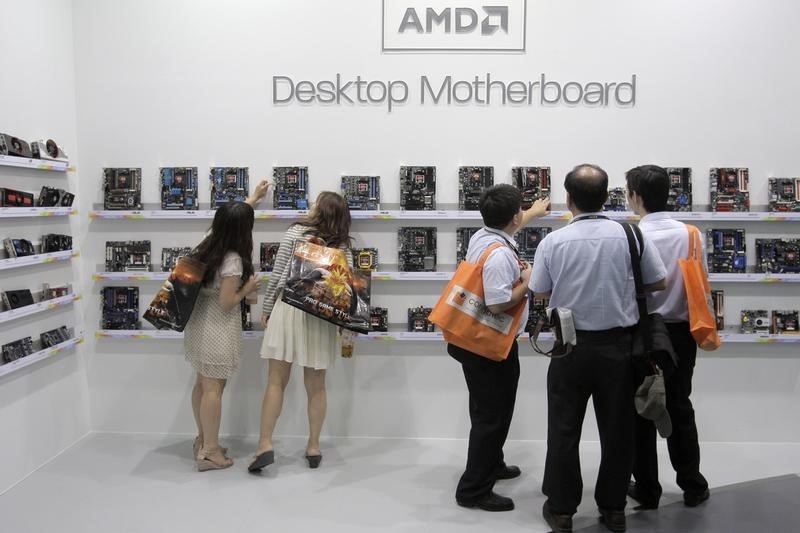Stock Story -
What Happened?
Shares of computer processor maker AMD (NASDAQ:AMD) fell 5.1% in the afternoon session after the company announced new data center AI chips (AMD Instinct MI325X Accelerators), barely a day after executives of rival Nvidia (NASDAQ:NVDA) announced to Wall Street analysts that the Blackwell GPU (designed for AI workloads) products are "booked out 12 months." Also, AMD's new AI chip won't begin shipping until the first quarter of 2025. AMD's CEO Lisa Su touts her company’s new platform as superior to Nvidia's Blackwell when specific inference benchmarks are used.The stock market overreacts to news, and big price drops can present good opportunities to buy high-quality stocks. Is now the time to buy AMD? Find out by reading the original article on StockStory, it’s free.
What The Market Is Telling Us
AMD’s shares are very volatile and have had 21 moves greater than 5% over the last year. In that context, today’s move indicates the market considers this news meaningful but not something that would fundamentally change its perception of the business.The previous big move we wrote about was 21 days ago when the stock gained 6.8% as markets roared back after an initially muted response to the Fed's rate cut, which sparked a renewed appetite for risk assets. While investors were expecting a reduction in rates from the US central bank, there was a bit of back and forth on whether the cut would be 25bps (a quarter percent) or 50bps (half a percent). The Fed ended up slashing its policy rate by 50bps (0.5%) to 4.75%-5.00%. This marks the first rate reduction in roughly four years.
The Fed--under Chair Jerome Powell--began raising rates to tackle inflation coming out of the COVID-19 pandemic when a confluence of supply chain disruptions, labor shortages, and stimulus spending caused inflation to run hot. Looking forward, the Fed signaled that more cuts are possible in 2024/25.
Putting it all together, the announcement and outlook provided a breath of fresh air and a clearer view of the Fed's monetary policy stance, which the market has been waiting for with bated breath. If there's anything the market doesn't like, it's uncertainty.
As a reminder, the driver of a stock's value is the sum of its future cash flows discounted back to today. The result of lower interest rates, all else equal, is higher stock valuations. This is especially true for higher-growth stocks such as those in the technology sector, where the current value depends more on cash flows many years out in the future.
AMD is up 18.5% since the beginning of the year, but at $164.27 per share, it is still trading 22.3% below its 52-week high of $211.38 from March 2024. Investors who bought $1,000 worth of AMD’s shares 5 years ago would now be looking at an investment worth $5,788.
